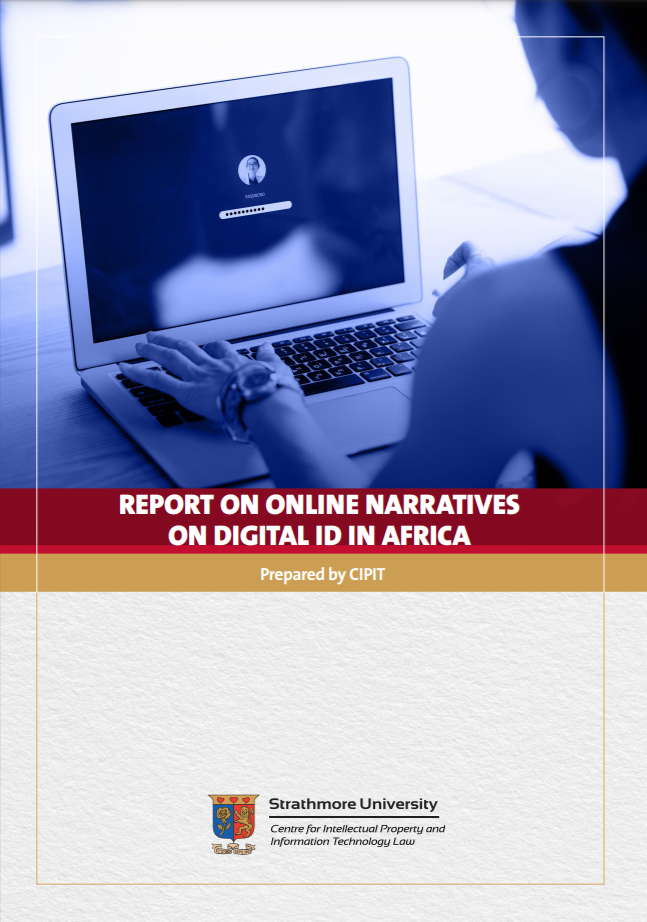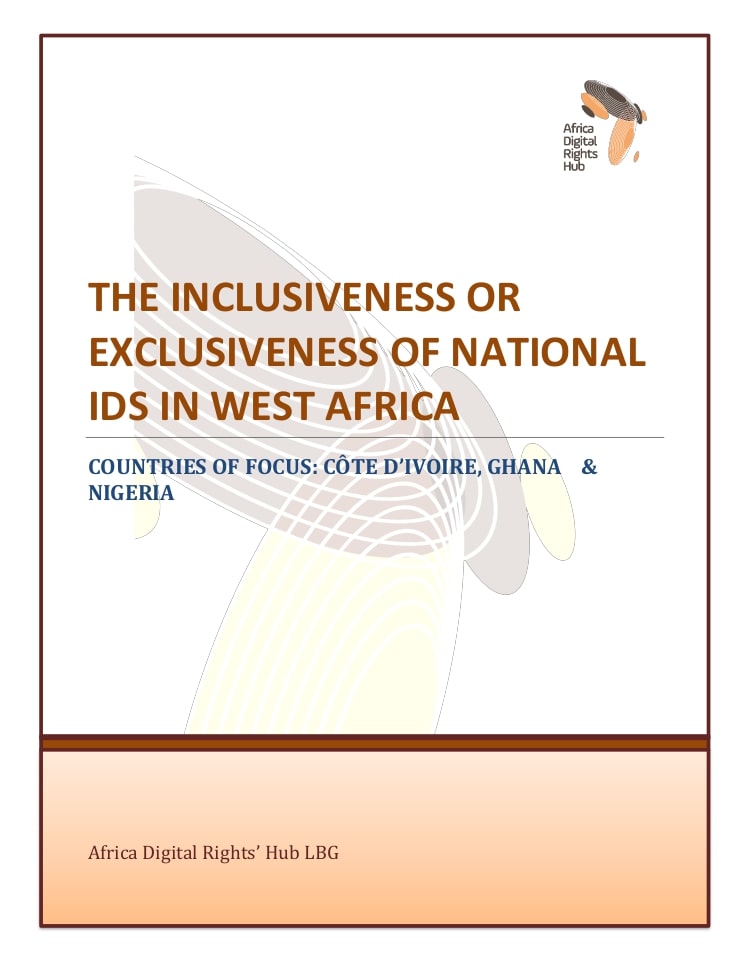A Downloadable version of the policy recommendations below is here.
Beyond Technical Soundness: Making Room for Human Rights in Kenya’s Digital Identity Projects.
Policy Brief.
Developing countries around the world are turning to digital identity systems to address development challenges. But some development challenges cannot be resolved purely on technical terms. Where they are implemented without adequate consideration of the local social and historical context, the systems can cause significant harm that undermine any putative benefits. This policy brief focuses on Kenya’s digital identity project which has been plagued with dissent and confusion in part because it has not been sensitive to key human rights concerns. It provides a preliminary human rights framework to analyse Kenya’s Huduma Number.
The report is based on a 12-month desk study conducted at the Centre for Intellectual Property and Technology (CIPIT) at Strathmore University.1 In brief, the study found that the logic of ID systems in Kenya has always been premised in discrimination and structural violence which has neither been challenged nor addressed over the years. The Huduma Number is therefore being grafted on to a problematic basis and must be subjected to a thorough human rights assessment before it proceeds. Examples of this contextual basis include vetting for specific ethnic communities, politicisation of identity and coercion perpetrated by the Executive.
Aside from these conceptual flaws, the roll out of the Huduma Number has as well been problematic. A court held that the process was not mandatory due the absence of a Data Protection Act.2 This was not the first setback. Earlier, in 2007, a unique PIN generated at the direction of an Inter-Ministerial Task Force was to be integrated into the National ID – this did not occur. In 2009, a tender was awarded to OT Morpho to print the cards but this also did not come to pass due to a court challenge. The process was restarted in 2011 through the Kenya Citizens and Foreign Nationals Management Service Act and stalled in 2014. The process has also seen insufficient public participation. The Executive began the Huduma Number registration exercise in June 2018 on the basis of an Executive Order as opposed to an Act of Parliament, precluding public participation. The enabling Act was subsequently passed via the Statute Law (Miscellaneous Amendments) Act in December 2018, but there wasn’t much public participation in that process either. Throughout all this, the government policy was inconsistent. State officers and public officials gave conflicting accounts of the mandatory nature of the Huduma Number.3 The legal validity for the Huduma Number was also questioned by the Senate due to the failure of the National Assembly to consult it during parliamentary debate.
The Huduma Number also faced a number of human rights challenges. Notably, on 22nd March 2019, the Kenya Commission on Human Rights (KCHR) and the Nubian Rights Forum filed a petition to stop the Huduma Namba registration exercise citing that it violated the constitution. Despite a concluded court case, the broader human rights concerns of civil society remain unaddressed. These include: discrimination and exclusion; data protection; state surveillance; and a lack of transparency and public participation.
Conclusions: Technical soundness cannot compensate for human rights failures embedded in the logic of a digital identity system. The Huduma Namba project is not only technically unsound but contains significant human rights issues that must be addressed. A human rights analysis of a digital ID system must address questions of harm, privacy, balance of power, democratic participation, and suitability for local context.
Summarized Policy Recommendations
Recommendations for the Executive: Conduct meaningful nationwide, public engagement on the Huduma Namba, including translations into local languages to enable full participation; and address issues of discrimination and exclusion embedded in the logic of identity systems in Kenya, particularly on the unfair use of vetting against marginalised communities.
Recommendations for the Legislature: Suspend the provisions of the data protection law until an effective human rights review can be conducted with the oversight of the Senate and in partnership with human rights actors in the country. Review, revise, or eliminate “carve-outs” such as blanket exemptions from data protection provisions for public sector activities.
Recommendations for the Judiciary: Strengthen the capacity of the judiciary to understand and effectively litigate digital rights issues.
Recommendations for Human Rights Organisations: Strengthen the capacity of Kenya’s human rights community to respond to the changes in the digital rights landscape; Conduct meaningful research into alternative methods of improving service delivery that do not divert key government resources, perpetuate discrimination and exclusion, enhance the coercive reach of the state, and engender mass surveillance and criminalisation of the society; Lobby parliament for a human rights review of the Data Protection Act (2019) and demand amendments of clauses that do not conform to international standards on data protection; Increase public awareness on the importance of digital rights as human rights, and understanding the implications of building the state’s coercive and surveillance capacity; and Support public forums and debates on the impact of digital identities on daily life.
1 See generally, Nanjala Nyabola and Isaac Rutenberg (forthcoming) Kipande, Kitambulisho, Huduma Number: A Critical History of Identity Systems in Kenya (unpublished).


